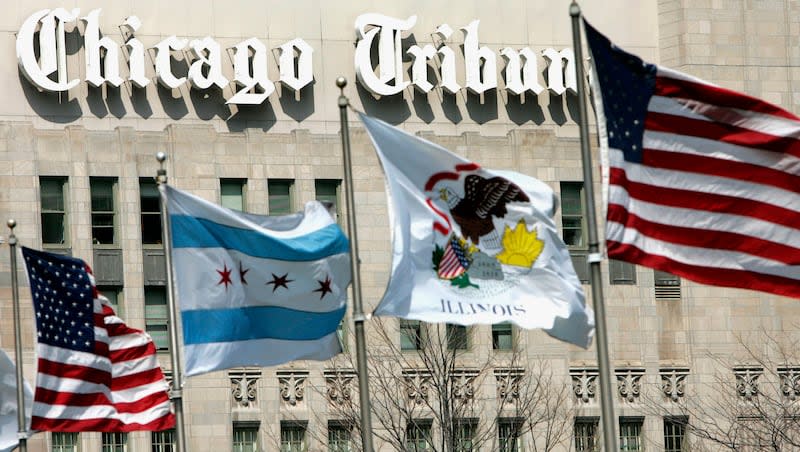Major U.S. newspapers sue Microsoft, OpenAI over alleged copyright violations

A group of eight U.S. newspaper publishers filed a lawsuit in New York federal court on Tuesday, claiming Microsoft and artificial intelligence developer OpenAI broke copyright law by using the newspapers’ online content to develop AI tools.
The news outlets, which include the Chicago Tribune, New York Daily News and Orlando Sentinel, all owned by investment company Alden Global Capital MediaNews Group, accuse the tech companies of “purloining millions of the publishers’ copyrighted articles without permission and without payment” to develop the generative AI platforms that include Microsoft’s Copilot and OpenAI’s ChatGPT.
“Defendants have created those GenAI products in violation of the law by using important journalism created by the publishers’ newspapers without any compensation,” the lawsuit reads.
The publishers say Microsoft and OpenAI have grown their respective valuations by tens of billions of dollars thanks to the success of their AI products and are happy to pay for all other aspects of AI development, like facilities, pricey computer chips and talented programmers, but not for the content that makes those platforms “smarter.”
“Despite admitting that they need copyrighted content to produce a commercially viable GenAI product, defendants contend that they can fuel the creation and operation of these products with the publishers’ content without permission and without paying for the privilege,” the complaint reads. “They are wrong on both counts, as this lawsuit will prove.”
The filing includes a quote from OpenAI co-founder and CEO Sam Altman from testimony he offered before the U.K.’s House of Lords, in which he touches on the use of modern copyrighted material for AI systems training purposes.
“Because copyright today covers virtually every sort of human expression — including blog posts, photographs, forum posts, scraps of software code, and government documents — it would be impossible to train today’s leading AI models without using copyrighted materials,” Altman said. “Limiting training data to public domain books and drawings created more than a century ago might yield an interesting experiment, but would not provide AI systems that meet the needs of today’s citizens.”
In a statement shared with The Associated Press, OpenAI said it was engaging with news organizations in an attempt to navigate content use issues.
“While we were not previously aware of Alden Global Capital’s concerns, we are actively engaged in constructive partnerships and conversations with many news organizations around the world to explore opportunities, discuss any concerns, and provide solutions,” the statement reads.
Fair use vs. copyright law
Tech companies have argued their use of content available in the public domain is protected under “fair use” guidelines. Newspapers and other content creators contend that generative AI platforms that have been trained on their material are designed to repurpose and distribute that information without attribution or acknowledgement in a process that not only upends copyright law, but effectively pulls consumer traffic and engagement away from the source providers and leads to revenue losses and brand erosion.
Lawsuits targeting Microsoft and OpenAI for copyright infringement are piling up, with previous filings made by The New York Times, other news publications and some bestselling authors, including John Grisham, George R.R. Martin and Jodi Picoult.
While these legal actions against Microsoft and OpenAI include arguments that point to lack of compensation and/or permissioned use of content, OpenAI, whose technology is also the basis of Microsoft’s Copilot platform, have struck a handful of deals with news organizations, including The Associated Press, news publishing giants Axel Springer in Germany and Prisa Media in Spain, France’s Le Monde newspaper and, most recently, the London-based Financial Times, per AP.
Microsoft is also a major financial partner of OpenAI, having invested some $13 billion in the company.

